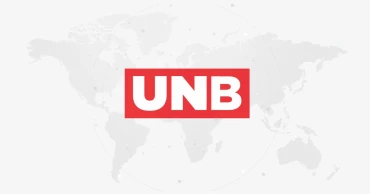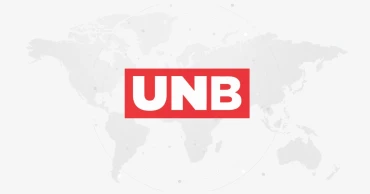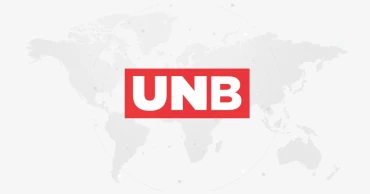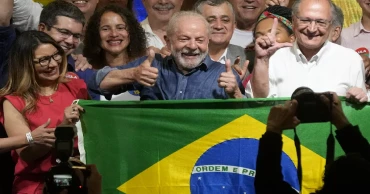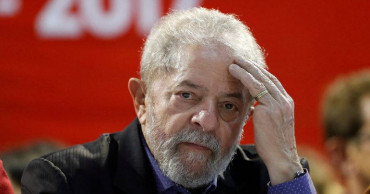Luiz Inacio Lula da Silva
Brazilian President Lula plans to visit Bangladesh
Brazilian President Luiz Inácio Lula da Silva has expressed his interest in visiting Bangladesh in the coming months, hoping it would strengthen ties between the two nations.
President Lula made the announcement during a meeting with Chief Adviser Professor Muhammad Yunus on the sidelines of the FAO-organised World Food Forum (WFF) flagship event in Rome on Monday, said Chief Adviser’s Deputy Press Secretary Abul Kalam Azad Majumder.
Both leaders served as keynote speakers at the forum and later held a bilateral meeting at the FAO headquarters to discuss matters of mutual interest, including social business, universal healthcare, social inclusion and strategies to combat poverty.
During the meeting, the Chief Adviser formally invited President Lula to visit Bangladesh at a mutually convenient time. President Lula accepted the invitation, expressing his intention to make the trip by February.
“I will go to Bangladesh,” he affirmed, adding that Brazil is keen to share its experience in providing universal healthcare for its citizens and to learn from Bangladesh’s pioneering work in social business and microcredit.
Prof Yunus lauds Mayor of Rome for supporting Bangladeshi community
“That would be fantastic!” Prof Yunus responded.
The two leaders also explored opportunities for cooperation in areas such as deep-sea fishing, pharmaceuticals, including the push to make vaccines patent-free and affordable, climate change action ahead of the upcoming COP30 summit, and the recent youth-led uprising in Bangladesh in July 2024.
Prof Yunus recalled his earlier engagements in Brazil, including his 2008 meeting with the then-president and his October 2023 tour of major Brazilian cities.
President Lula extended an invitation to Prof Yunus to participate in COP30, which will be held in an Amazonian state to draw global attention to the fight to protect the world's largest tropical rainforest.
The Chief Adviser thanked President Lula for the invitation, but he noted that he might not attend the COP 30, citing his involvement in preparations for Bangladesh’s upcoming general election, scheduled for the first half of February.
4 months ago
Haunted by post-election riot, Brazil’s Lula reins in army
When rioters stormed Brazil’s top government buildings in January to dispute the outcome of the presidential election, many soldiers stood by as far-right protesters broke windows, defecated in offices and destroyed valuable art.
The images from Brasilia that day still haunt the left-leaning government of President Luiz Inácio Lula da Silva. He has strived ever since to ensure that military leaders defend South America’s largest democracy and stay out of politics.
The threat isn't just hypothetical. Brazil has lived through four military coups – the most recent one in 1964, followed by two decades of brutal dictatorship.
Also Read: Bolsonaro says he may return to Brazil in the coming weeks
Lula’s task is fraught. The military is filled with supporters of ex-president Jair Bolsonaro, and its role in the new government is being diminished by the day.
Lula has already tapped more than 100 civilians to replace military officers Bolsonaro appointed to key positions, and he has moved oversight of the country's intelligence agency to his chief of staff's office, among other changes.
“Lula needed to manage his relationship with the military to be able to govern, and will continue to do so,” said Carlos Melo, a political science professor at Insper University in Sao Paulo.
Melo said Brazil's military has long believed that it has "some kind of guardianship of the country’s political process," and Bolsonaro only fueled that belief.
Also Read: Brazil deluge toll hits 44 as search continues for missing
Bolsonaro, a former army captain, appointed more than 6,000 military officers to jobs across his government and revived an annual commemoration of the 1964 coup to stoke nostalgia for the days of military rule.
Although that era was marked by human rights abuses and the loss of civil liberties, Bolsonaro and many of his supporters remember it fondly as a time of strong nationalism, economic growth and conservative values. They view Lula's efforts to tame the military as heavy-handed and misguided.
“Stop looking through the rearview mirror and govern for all Brazilians,” Bolsonaro's former vice president, Gen. Hamilton Mourão, who is now a senator, said in an interview.
The most significant move Lula has made so far has been to elevate Gen. Tomás Paiva to be the army’s top commander.
Paiva, 62, has pledged to keep soldiers out of politics and to respect the results of October’s election, in which Lula beat Bolsonaro by a razor-thin margin.
Yet Paiva has also acknowledged that most the military’s leaders voted for Bolsonaro, and he lamented Lula’s victory to subordinates just three days before the new president called to offer him the promotion — comments he later said were misinterpreted.
Lula has taken various other steps aimed inoculating Brazil from the risk of another violent uprising with at least tacit support from some in the military:
— He blocked the appointment of a Bolsonaro loyalist to command the Goiania battalion, based an uncomfortably close 124 miles from the capital.
— He placed the country’s intelligence agency — formerly overseen by members of the military — under the office of his chief of staff, which is led by civilians.
— He took a symbolically important trip to the U.S., which before the election had warned Brazilian military leaders to steer clear of politics if they wanted access to arms purchases and cooperation from American armed forces.
For now, there is no evidence of another uprising being planned or of military leaders questioning Lula's orders, according to a high-ranking official in the army and a person who works closely with the defense minister, both of whom spoke on condition of anonymity because they weren't authorized to speak publicly.
Lula enlisted the military’s cooperation twice in February: as part of a massive operation to expel some 20,000 illegal miners from the Yanomami Indigenous area in Brazil’s Amazon, and to help rescue people after mudslides near Sao Paulo.
These represented early tests of the relationship between Lula and the military, and the results were very positive, said political consultant Thomas Traumann. Still, there's no guarantee of long-term stability, he said.
It remains to be seen whether military retirees and active duty service members who either took part in the Jan. 8 riots or turned a blind eye to them will receive punishment. Some analysts believe that would be important to deter future action.
One video from Jan. 8 showed policemen at the presidential palace in the rare position of barking orders at soldiers: “Lead your troops!” one officer shouted at members of the presidential guard, which is part of the army.
Another video showed dozens of rioters surrounded by police in the palace, as a general attempts to free them. “Are you nuts?” a policeman asks. “They’re in custody!”
Hundreds of civilians who participated in the riots have been jailed and dozens indicted. But service members have so far been spared. The military prosecutors’ office and the top military court have opened 17 investigations, although neither has been transparent about the process.
The incoming Chief Justice of Brazil’s Superior Military Court, Joseli Camelo, said he was encouraged recently when the army canceled a plan to commemorate the upcoming anniversary of the 1964 military coup, a dictatorship-era tradition that Bolsonaro revived.
“This is just another demonstration that the commander is aligned with all the powers towards our common challenge, which is to pacify Brazil and definitively reinforce democracy in our country,” Camelo said.
Mourão, Bolsonaro's former vice president, says the military should not spare any of its members who are proven guilty of taking part in the riots. “The armed forces are shaped to be rigorous in the investigation of disciplinary errors and military crimes,” he said.
Even before taking office in January, Lula — who served as president from 2003-2010 — knew it was essential for him to bolster ties with the country’s right-leaning military.
Some highly regarded military leaders had openly derided him before the election, and some even campaigned to reelect Bolsonaro. For months, the army permitted anti-Lula protesters who were openly supportive of a military coup against him to camp outside their barracks.
In Lula’s first two presidential terms, his relationship with the military was marked by conciliation rather than confrontation, said Fabio Victor, a journalist who just published a best-selling book on Brazil’s armed forces and politics. But Jan. 8 appears to have altered his calculus.
In contrast with Bolsonaro's administration, few members of the armed forces work at the presidential palace, Victor said. With an eye toward the future, Lula's allies in Congress are pushing for constitutional changes that would more clearly define the military's powers and limits, and his ministers are looking at overhauling military education.
“Lula today is very suspicious of the military,” Victor said.
2 years ago
Brazil's Lula sworn in, vows accountability and rebuilding
Brazil’s Luiz Inácio Lula da Silva was sworn in as president on Sunday, and in his first address expressed optimism about plans to rebuild while pledging that members of outgoing Jair Bolsonaro’s administration will be held to account.
Lula is assuming office for the third time after thwarting far-right incumbent Bolsonaro’s reelection bid. His return to power marks the culmination of a political comeback that is thrilling supporters and enraging opponents in a fiercely polarized nation.
“Our message to Brazil is one of hope and reconstruction,” Lula said in a speech in Congress’ Lower House after signing the document that formally instates him as president. “The great edifice of rights, sovereignty and development that this nation built has been systematically demolished in recent years. To re-erect this edifice, we are going to direct all our efforts.”
Sunday afternoon in Brasilia's main esplanade, the party was on. Tens of thousands of supporters decked out in the red of Lula’s Workers’ Party cheered after his swearing in.
They celebrated when the president said he would send a report about the prior administration to all lawmakers and judicial authorities, revoke Bolsonaro's “criminal decrees” that loosened gun control, and hold the prior administration responsible for its denialism in the face of the COVID-19 pandemic.
“We do not carry any spirit of revenge against those who sought to subjugate the nation to their personal and ideological designs, but we are going to ensure the rule of law," Lula said, without mentioning Bolsonaro by name. "Those who erred will answer for their errors, with broad rights to their defense within the due legal process.”
Lula’s presidency is unlikely to be like his previous two mandates, coming after the tightest presidential race in more than three decades in Brazil and resistance to his taking office by some of his opponents, political analysts say.
Read more: Brazil: Can Lula the Lefty do better?
The leftist defeated Bolsonaro in the Oct. 30 vote by less than 2 percentage points. For months, Bolsonaro had sown doubts about the reliability of Brazil’s electronic vote and his loyal supporters were loath to accept the loss.
Many have gathered outside military barracks since, questioning results and pleading with the armed forces to prevent Lula from taking office.
His most die-hard backers resorted to what some authorities and incoming members of Lula’s administration labeled acts of “terrorism” – which had prompted security concerns about inauguration day events.
Lula will have to navigate more challenging economic conditions than he enjoyed in his first two terms, when the global commodities boom proved a windfall for Brazil.
At the time, his administration's flagship welfare program helped lift tens of millions of impoverished people into the middle class. He left office with a personal approval rating of 83%.
In the intervening years, Brazil’s economy plunged into two deep recessions — first, during the tenure of his handpicked successor, and then during the pandemic — and ordinary Brazilians suffered greatly.
Lula has said his priorities are fighting poverty, and investing in education and health. He has also said he will bring illegal deforestation of the Amazon to a halt. He sought support from political moderates to form a broad front and defeat Bolsonaro, then tapped some of them to serve in his Cabinet.
In his first act as president Sunday, Lula signed a decree to tighten gun control and set a 30-day deadline for the comptroller-general’s office to evaluate various Bolsonaro decrees that placed official information under seal for 100 years. He also signed a decree that guaranteed a monthly stipend for poor families, and reestablished the mostly Norway-financed Amazon fund for sustainable development in the rainforest.
Claúdio Arantes, a 68-year-old pensioner, carried an old Lula campaign flag on his way to the esplanade. The lifelong Lula supporter attended his 2003 inauguration, and agreed that this time feels different.
“Back then, he could talk about Brazil being united. Now it is divided and won’t heal soon,” Arantes said. “I trust his intelligence to make this national unity administration work so we never have a Bolsonaro again.”
Read more: Brazil election: Lula defeats Bolsonaro to become president again
Given the nation’s political fault lines, it is highly unlikely Lula ever reattains the popularity he once enjoyed, or even sees his approval rating rise above 50%, said Maurício Santoro, a political science professor at Rio de Janeiro’s State University.
Furthermore, Santoro said, the credibility of Lula and his Workers’ Party were assailed by a sprawling corruption investigation. Party officials were jailed, including Lula — whose convictions were later annulled on procedural grounds. The Supreme Court then ruled that the judge presiding over the case had colluded with prosecutors to secure a conviction.
Lula and his supporters have maintained he was railroaded. Others were willing to look past possible malfeasance as a means to unseat Bolsonaro and bring the nation back together.
“I always wanted to go the inauguration, I didn’t think I would have a chance to see Lula there after he was jailed,” said Tamires Valente, 43, a marketing professional from Brasilia. “I am very emotional, Lula deserves this.”
But Bolsonaro’s backers refuse to accept someone they view as a criminal returning to the highest office. And with tensions running hot, a series of events has prompted fear that violence could erupt on inauguration day.
On Dec. 12, dozens of people tried to invade a federal police building in Brasilia, and burned cars and buses in other areas of the city. Then on Christmas Eve, police arrested a 54-year-old man who admitted to making a bomb that was found on a fuel truck headed to Brasilia’s airport.
He had been camped outside Brasilia’s army headquarters with hundreds of other Bolsonaro supporters since Nov. 12. He told police he was ready for war against communism, and planned the attack with people he had met at the protests, according to excerpts of his deposition released by local media.
Bolsonaro finally condemned the bomb plot in a Dec. 30 farewell address on social media, hours before flying to the U.S.. His absence on inauguration day marks a break with tradition.
Instead of Bolsonaro, a group representing diverse segments of society performed the role of presenting Lula with the presidential sash to Lula atop the ramp of the presidential palace. Across the sea of people standing before the palace, supporters stretched a massive Brazilian flag over their heads.
Speaking to the crowd, Lula listed shortfalls in government funds that will affect the Brazilian people. He said that, according to the transition team’s report on Bolsonaro’s government, textbooks haven’t been printed for public schools, there are insufficient free medications and COVID-19 vaccines, the threat looms of federal universities shutting down, and civil defense authorities cannot work to prevent disasters.
“Who pays the price for this blackout is, once again, the Brazilian people,” he said, and was promptly met by a chant from the crowd: “No amnesty! No amnesty! No amnesty!”
3 years ago
Brazil: Can Lula the Lefty do better?
Brazilian voters narrowly elected former president Luiz Inácio Lula da Silva, as the next President defeating Jair Bolsonaro, the right-wing incumbent. The vote percentage was 50.9% against 49.1% so it’s not a sweeping victory but a narrow squeak through. Lula is beloved of the Global Left who has no serious icons left in the world now. But the troubles may not be entirely over. Bolsonaro had indicated that he may not hand over power that easily but he seems to have relented now.
Bolsonaro, is an ex-army who had often said that he won't accept an electoral loss. Because the loss margin is less than 1% he was confident of street and public support. Bolsonaro supporters termed the election as a fraud and called for military intervention.
However, several key allies have recognized the result leaving Bolsonaro looking increasingly isolated. Meanwhile, U.S. President Joe Biden and the presidents of all of Brazil’s South American neighbors have congratulated Lula, further increasing the pressure on the incumbent.
Lula wants power not a fight and said, “As of January 1, 2023, I will govern for 215 million Brazilians and not just for those who voted for me. There are not two Brazils. We are one country, one people, and one great nation.”
Who is Lula?
Lula is a trade union leader who established the leftist Worker’s Party which won the Presidential election in 2002. He ruled for 2 terms and they coincided with a surge with booming value of Brazilian commodities and rising exports to China. His major expansion in social programs, particularly Bolsa Família which gave the poor “cash for school attendance” made him very popular. His departure in 2010 was with an 83% approval rating.
In 2017, Lula was convicted in a corruption case and sentenced for 10 years. But in 2021, Brazil’s Supreme Court overruled Lula’s conviction, saying his right to a fair trial had been compromised. But Brazilians are split on his guilt or innocence. 44% believe he was rightly convicted, while 40% believe his conviction was unjust.
Read: PM Sheikh Hasina congratulates Lula on winning Brazil election
Why did Bolsanaro lose ?
The main enemy is Covid and the global economic downturn. Bolsonaro handled it poorly with more people dying than all countries except the US. After Lula’s release, his alliance with disgruntled rights wingers tipped the scale. Lula has promised to restore public services now sunk low due to years of underinvestment, lower domestic energy prices, battle inflation and easing food insecurity. Some are however critical of his policies as he has declared nothing. Lula told TIME magazine, in March 2022. “ I’ve been a President twice already. We don’t discuss economic policies before winning the elections. First, you have to win the elections.”
With eight years of deep economic crisis, this round for Lula will be tough. Lula had greatly benefited from a commodity economic boom that was over. Now, global economic turmoil from the war in Ukraine is driving up energy prices, while a years-long drought is curbing food production.
Bolsonaro’s global image is very negative due to his ravaging of the Amazon and handling of the Covid crisis. He called it a “little flu” but ended up with 700,000 recorded COVID-19 deaths. But Bolsonaro is hardly over. Many of his ministers have won the election and his political movement is very alive. Even the former environment minister won a seat in Brazil’s Congress at the first round of elections making his right-wing Liberal Party the largest party in both the upper and lower house. The governorships of Brazil’s three most economically-important states were also won by Bolsonaro allies. Lula’s challenge is very big indeed.
Lula’s world has changed
Read: Brazil election: Lula defeats Bolsonaro to become president again
Lula is being welcomed by the liberal section of the West because of his environmentalist agenda. But Lula is also not an ally of the West as some think. He is not supporting Ukraine against Russia
“The United States has a lot of political clout. And Biden could have avoided [the war], not incited it, Biden could have taken a plane to Moscow to talk to Putin. This is the kind of attitude you expect from a leader.”
The world has changed much since Lula was the President last. Not only has the economy become more globalized and interconnected but the challenges are in every sector including health and war. Lula has returned to power when the world is in its worst shape in many ways since the last few decades.
In this world, a better environment and economy doesn’t depend on Brazil or Lula anymore. Russia and the West have shown their capacity to manage a world in which they reign as superpowers is very limited. Commodity prices have shifted by artificial demand loss generated by the war in Ukraine. The West did push the world into an acute shortage zone willingly, whether it’s the Russians or the US.
Why Lula should be responsible for saving the environment when the West doesn’t take on climate change issues is a question he won’t answer but will become a big reality. The One world never existed, never will. It’s how Brazil plays that game in the absence of any serious “political” globalization, that global issues including climate change should be considered.
3 years ago
Brazil election: Lula defeats Bolsonaro to become president again
Luiz Inácio Lula da Silva has done it again: Twenty years after first winning the Brazilian presidency, the leftist defeated incumbent Jair Bolsonaro Sunday in an extremely tight election that marks an about-face for the country after four years of far-right politics.
With 99.9% of the votes tallied in the runoff vote, da Silva had 50.9% and Bolsonaro 49.1%, and the election authority said da Silva’s victory was a mathematical certainty. At about 10 p.m. local time, three hours after the results were in, the lights went out in the presidential palace and Bolsonaro had not conceded nor reacted in any way.
Before the vote, Bolsonaro's campaign had made repeated — unproven — claims of possible electoral manipulation, raising fears that he would not accept defeat and would challenge the results if he lost.
The high-stakes election was a stunning reversal for da Silva, 77, whose imprisonment for corruption sidelined him from the 2018 election that brought Bolsonaro, a defender of conservative social values, to power.
“Today the only winner is the Brazilian people," da Silva said in a speech at a hotel in downtown Sao Paulo. “This isn’t a victory of mine or the Workers’ Party, nor the parties that supported me in campaign. It’s the victory of a democratic movement that formed above political parties, personal interests and ideologies so that democracy came out victorious.”
Da Silva is promising to govern beyond his party. He wants to bring in centrists and even some leaning to the right who voted for him for the first time, and to restore the country’s more prosperous past. Yet he faces headwinds in a politically polarized society where economic growth is slowing and inflation is soaring.
This was the country's tightest election since its return to democracy in 1985, and the first time since then that the sitting president failed to win reelection. Just over 2 million votes separated the two candidates; the previous closest race, in 2014, was decided by a margin of roughly 3.5 million votes.
The highly polarized election in Latin America's biggest economy extended a wave of recent leftist victories in the region, including Chile, Colombia and Argentina.
As Lula spoke to his supporters — promising to “govern a country in a very difficult situation” — Bolsonaro had yet to concede.
Da Silva’s inauguration is scheduled to take place on Jan. 1. He last served as president from 2003-2010.
Thomas Traumann, an independent political analyst, compared the results to Biden’s 2020 victory, saying da Silva is inheriting an extremely divided nation.
“The huge challenge that Lula has will be to pacify the country,” he said. “People are not only polarized on political matters, but also have different values, identity and opinions. What’s more, they don’t care what the other side’s values, identities and opinions are.”
Congratulations for da Silva — and Brazil — began to pour in from around Latin America and across the world Sunday evening, including from U.S. President Joe Biden, who highlighted the country’s “free, fair, and credible elections.” The European Union also congratulated da Silva in a statement, commending the electoral authority for its effectiveness and transparency throughout the campaign.
Bolsonaro had been leading throughout the first half of the count and, as soon as da Silva overtook him, cars in the streets of downtown Sao Paulo began honking their horns. People in the streets of Rio de Janeiro’s Ipanema neighborhood could be heard shouting, “It turned!”
Da Silva’s headquarters in downtown Sao Paulo hotel only erupted once the final result was announced, underscoring the tension that was a hallmark of this race.
“Four years waiting for this,” said Gabriela Souto, one of the few supporters allowed in due to heavy security.
Outside Bolsonaro’s home in Rio, ground-zero for his support base, a woman atop a truck delivered a prayer over a speaker, then sang excitedly, trying to generate some energy as the tally grew for da Silva. But supporters decked out in the green and yellow of the flag barely responded. Many perked up when the national anthem played, singing along loudly with hands over their hearts.
For months, it appeared that da Silva was headed for easy victory as he kindled nostalgia for his presidency, when Brazil’s economy was booming and welfare helped tens of millions join the middle class.
But while da Silva topped the Oct. 2 first-round elections with 48% of the vote, Bolsonaro was a strong second at 43%, showing opinion polls significantly had underestimated his popularity.
Bolsonaro’s administration has been marked by incendiary speech, his testing of democratic institutions, his widely criticized handling of the COVID-19 pandemic and the worst deforestation in the Amazon rainforest in 15 years. But he has built a devoted base by defending conservative values and presenting himself as protection from leftist policies that he says infringe on personal liberties and produce economic turmoil. And he shored up support in an election year with vast government spending.
“We did not face an opponent, a candidate. We faced the machine of the Brazilian state put at his service so we could not win the election," da Silva told the crowd in Sao Paulo.
Da Silva built an extensive social welfare program during his tenure that helped lift tens of millions into the middle class. The man universally known as Lula also presided over an economic boom, leaving office with an approval rating above 80%, prompting then U.S. President Barack Obama to call him “the most popular politician on Earth.”
But he is also remembered for his administration’s involvement in vast corruption revealed by sprawling investigations. Da Silva’s arrest in 2018 kept him out of that year’s race against Bolsonaro, a fringe lawmaker at the time who was an outspoken fan of former U.S. President Donald Trump.
Da Silva was jailed for for 580 days for corruption and money laundering. His convictions were later annulled by Brazil’s top court, which ruled the presiding judge had been biased and colluded with prosecutors. That enabled da Silva to run for the nation’s highest office for the sixth time.
Da Silva has pledged to boost spending on the poor, reestablish relationships with foreign governments and take bold action to eliminate illegal clear-cutting in the Amazon rainforest.
“We will once again monitor and do surveillance in the Amazon. We will fight every illegal activity," da Silva said in his acceptance speech. "At the same time we will promote sustainable development of the communities of the Amazon.”
The president-elect has pledged to install a ministry for Brazil’s original peoples, which will be run by an Indigenous person.
But as da Silva tries to achieve these and other goals, he will be confronted by strong opposition from conservative lawmakers likely to take their cues from Bolsonaro.
Carlos Melo, a political science professor at Insper University in Sao Paulo, compared the likely political climate to that experienced by former President Dilma Rousseff, da Silva’s hand-picked successor after his second term.
“Lula’s victory means Brazil is trying to overcome years of turbulence since the reelection of President Dilma Rousseff in 2014. That election never ended; the opposition asked for a recount, she governed under pressure and was impeached two years later,” said Melo. “The divide became huge and then made Bolsonaro.”
Unemployment this year has fallen to its lowest level since 2015 and, although overall inflation has slowed during the campaign, food prices are increasing at a double-digit rate. Bolsonaro’s welfare payments helped many Brazilians get by, but da Silva has been presenting himself as the candidate more willing to sustain aid going forward and raise the minimum wage.
In April, he tapped center-right Geraldo Alckmin, a former rival, to be his running mate. It was another key part of an effort to create a broad, pro-democracy front to not just unseat Bolsonaro, but to make it easier to govern.
“If Lula manages to talk to voters who didn’t vote for him, which Bolsonaro never tried, and seeks negotiated solutions to the economic, social and political crisis we have, and links with other nations that were lost, then he could reconnect Brazil to a time in which people could disagree and still get some things done,” Melo said.
3 years ago
Brazil's Lula faces new indiction for corruption
Brazil's federal police indicted former President Luiz Inacio Lula da Silva on Thursday for another case of corruption.
6 years ago

